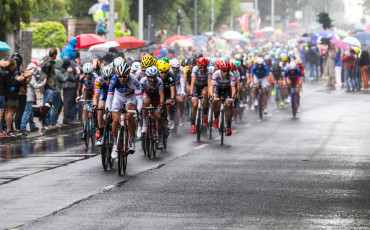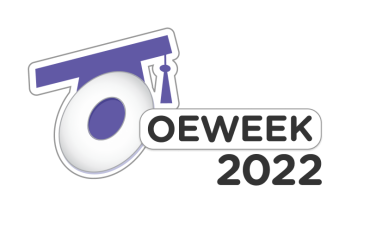Luuk Terbeek
https://www.linkedin.com/in/luukterbeek/ Meer over Luuk Terbeek
This year the theme of INTED2019 was Exploring New Frontiers in Education, in my reflection on this fantastic conference I also address some of the associated challenges based on five themes: Neuroscience, Gamification, Virtual Reality, MOOCs and of course… Blended Learning.
INTED is one of the largest international education conferences for lecturers, researchers, technologists and professionals from the educational sector. More than 700 experts from 80 countries get together to present their projects and share their knowledge on teaching and learning methodologies and innovations on educational technology. Just like last year, INTED2019, exceeded my expectations. It is a wonderful event where I also presented a paper this year. INTED 2019, a great place to meet enthusiastic and ambitious colleagues from all over the globe. First of all I want to make a big compliment to all people from IATED for their enormous effort that makes this conference such a huge success. Hopefully see you next year!
Barbara Oakley (Oakland University) the driving force behind “Learning How to Learn” one of the world’s most popular Massive Open Online Courses (MOOC’s) with over two million registered students, opens INTED2019 as one of the keynotes. During her presentation she emphasizes the importance of sleeping for learning. Distributing and repeating is also important for learning. What particularly appeals to me is the metaphors she chooses. A squid with four arms for short-term memory (referring to the maximum number of tasks that we can perform within it at the same time) and chains that hang securely in lockers for long-term memory. With these powerful metaphors and simple drawings, Barbara simply explains the essence of something very complex. She also proposes designing education as baking a cake, not only the ingredients determine the taste, I will do more with that metaphor; thanks Barbara!
Eva Ponick (Hochschule Hamm-Lippstadt) explains how she determines student's user types on the basis of questionnaires and how she uses these information about user types to optimally integrate gamified elements in learning environments. What appeals to me about Ponick's work is that it comes loose from the one-size-fits-all principle and at the same time she also notes that a preferred user type is not a static fact. There is still enough challenge left...
Azzura Rinaldi and Rosella Castellano (Unitelma Sapienza) emphasize the precarious situation regarding financial literacy in Italy and its implications, despite the Ministry of Education's program for ten years. Azzura and Rosella present an experimental strategy to increase the financial literacy of children through a virtual reality game. Supposing that children enjoy playing the game and are fully immersed in it by the VR application, the assumption is that playing the game contributes to the increasement of financial literacy. During the game in which they can, among other things, borrow money, buy toys and ice creams, the children also have to make a choice from whom they can borrow or buy something; from a boy or girl and with someone with a dark skin or with a white person. As a result collected data that can be used for other teaching goals that are more focused on social aspects. I am very curious about the effectiveness of this intervention if it is used on a long-term and on a large scale (for example as a permanent place in the curriculum). The data obtained as a result and in particular that what is subsequently done with it may be even more interesting than the application itself...
Rana Shanini (University of Southampton) has done an extensive literature study on MOOC’s in which she has also used Hofstede's model. This reminded me of an international project that I was involved with Marcel de Leeuwe twelve years ago: Framework for e-Learning Content Evaluation (Fe-Cone). Rana is very clear, although (some) MOOCs are able to captivate huge numbers of learners and thereby contribute to globalization, MOOCs do not score sufficiently on connecting to different viewpoints; cultural and social challenges still remain. Rana comes with five recommendations for MOOC development teams.
The one recommendation requires more effort than the other, I particularly like the open learning space idea. By working this out well, a MOOC also "naturally" meets Rana's concluding recommendation with regard to Personalized and context-based learning.
Stefan Dreisieber (University of Graz) explains how he has applied a three-fold approach to evaluate learning experience and learning outcomes of a MOOC with regard to information literacy within a study partly funded by Erasmus +. Stefan writes in the abstract of his paper:
‘The suggested evaluation framework follows a three-fold approach by using a standardized questionnaire, heuristic evaluations including severity ratings and documentations of individual learning times. The findings show first, that the results of the test regarding IL skills improved significantly after the students attended the MOOC. Second, the heuristic evaluation was able to show existing inconsistencies in the content and user interface as well as ratings of their perceived importance. Third, the documented learning time allowed comparisons with plans from the didactical framework. The students found the MOOC and the way how the evaluation was conducted also helpful for themselves.’.
The setup for evaluating the learning experience and paying attention to measuring information literacy appeals to me a lot, as well as the idea of the heuristic evaluation:
‘In a heuristic evaluation, a small team of evaluators systematically checks the user interface design using a small set of recognized usability principles. The interface is first examined regarding the general flow and afterwards on particular elements in detail. Each evaluator works alone, while drafting a list of potential problems and positive findings. To allow reproducibility also screenshots should be produced’.
Measuring the amount of time that a learner spends on an activity should be something that you should be able to extract from the MOOC platform used. I don't think students should make a note of this using a stopwatch. Within the VU Amsterdam I am involved in (supervising and evaluating) design and evaluation of a university-wide project "A Broader Mind". A Broader Mind, in which Bachelor's students come together to work on the issues affecting today's society and where personal development is paramount. This course is special: A Broader Mind has been developed by Building teams which are a collaboration of students, lecturers, researchers and other enthusiastic members of staff at VU University Amsterdam (more information: https://www.vu.nl/en/about-vu-amsterdam/mission-and-profile/broader-min…). We are currently evaluating the pilots of this program, using the validated survey for student evaluation belonging to the Community of Inquiry framework, where the learning experience is also central. This survey may also be interesting if the evaluation of MOOCs at the University of Graz is continued (and scaled up).
It was a honor and a pleasure to present our systematic Blended Learning literature study on behalf of Marjolein Cremer and Chris van Klaveren. This study is part of my PhD research. The accompanying paper is a working paper that I am currently finalizing with Robin van der Velde, my fellow PhD student. In this study we combine three intervention components (teaching method, learning activity and learning technology) with the three categories of the Community of Inquiry (CoI) framework (teaching presence, social presence and cognitive presence) in order to determine what we know and need to know of comparable blended learning studies based the combinations of intervention types (classification) and intervention compositions (describing the intervention) in order to explore patterns related to this combinations versus measured outcomes. It now appears to be too early to be able to establish evidence-based blended learning design guidelines based on available literature. Both the number of studies and the number of participants in these studies are (still) too limited for this. The use of the CoI framework and in particular the associated validated survey helps us to understand (comparable) studies in detail in order to be able to determine the active components (ingredients) within patterns derived from comparable studies, naturally taking that into account that the teacher is the No. 1 influencer of interventions as mentioned by Barbara referring to research of John Hattie.
I was delighted with the compliment and invitation from the John Coupertwaith, our session chair, to repeat my presentation on the famous ALT’s annual conference, I have just submitted my proposal… What I also liked was that afterwards people asked about the Masterclasses Blended Learning (without mentioning these masterclasses is my presentation) that I provide. Blended Learning is essentially about the mix of online and face-to-face activities, preferably complementary and mutually reinforcing. We can see that in the current Blended Learning studies a lot of attention is paid to learning technology and not so much to how this technology contributes to the essence of Blended Learning, so more than enough work left ...
I prefer to do that work in international (large-scale) cooperation, for example within Erasmus + or Horizon2020 projects. Please send me an e-mail: l.terbeek@vu.nl if you are interested in this, maybe we can join forces? In the coming period I also look forward to exploring the possibilities for joint research with:
People I didn't know before INTED2019...
Someone I already knew (from last year) and with whom I also hope to collaborate in the future is Ivan Otero (attlanTTic Research Center) who, when it comes to open educational resources and creative commons, indicates that 70% of teachers want to know more about this but whereas an equal percentage indicates that no information or training has been given in this area; here too: there is still plenty to do!
INTED2019 had the theme ‘Exploring New Frontiers in Education’ reflecting we can conclude that these New Frontiers certainly also bring enough New Challenges, demanding close international cooperation, a conference like INTED2019 facilitates this cooperation in an unprecedented way, keep up the good work IATED!
https://www.linkedin.com/in/luukterbeek/ Meer over Luuk Terbeek



0 Praat mee